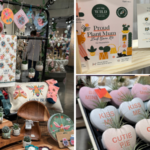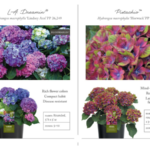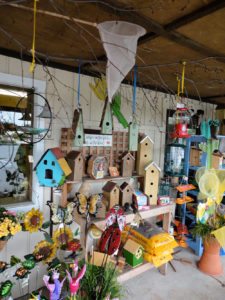The Big Three
Research studies across industries have found that approximately 68 percent of customers who defect to competitors do so because of poor service. That’s a sobering statistic when you think about how competitive the world of garden centers is today. Some of the studies further noted that customers define poor service as “an attitude of indifference on the part of employees.” So, we’re not even talking about bad service causing customers to leave; indifferent service has the same effect.
Since garden centers all offer pretty similar products, the only real business differentiator is how your garden center makes customers feel. If customers feel valued, most will remain loyal. If customers feel undervalued, they will likely defect to a competitor that is more convenient or offers cheaper prices, or for any number of reasons. In order to generate customer loyalty, every employee of your operation must understand and deliver what it takes to make customers feel valued.
While customer acquisition is an important part of any garden center’s business strategy, a focus on customer retention is the real secret to growth and profitability. Loyal customers continue doing business with you, purchase more products (bringing more share of wallet) and refer others to your business. That’s a pretty good formula for success.
Feeling Valuable
This article highlights three key practices for making customers feel valued and, therefore, loyal to your garden center.
1. Look at the garden center experience through the “lens of the customer.” You are in an emotional business. Customers see the beauty of their home through an emotional lens. Customers are passionate about their homes and landscaping and want to know that your garden center is just as passionate. Enthusiastic, knowledgeable and caring employees raise the customer’s confidence that the garden center is looking out for the customer’s interests. The customer trusts that when an employee discusses a new product, it’s done with the customer’s interests at heart. On the other hand, if the customer senses a lack of enthusiasm, knowledge or care, he/she will question the motive behind any product discussion. The customer’s emotionally driven lens is constantly interpreting what’s happening during any interaction. Garden and landscape products can be very confusing.
It’s easy for employees to fall into a habit of using language that customers don’t fully understand. While horticultural terminology may be familiar to you and your employees, such language can easily become overwhelming to some customers. If you’ve ever had a computer helpline employee talk to you in “computer-speak,” you know how frustrating and intimidating it can be. It’s important for employees to see through the lens of the customer, whatever his/her level of experience, and use terminology and language that fits the customer.
Customer complaints are frustrating for customers and employees alike. Sometimes it’s hard to understand why a customer is making such a big deal of a particular problem. Didn’t the customer read the directions? (Probably not.) Doesn’t the customer understand that what’s right for one plant isn’t right for another? (No, they often don’t.) It’s not the customer’s job to see through the garden center’s lens when a problem occurs; it’s the garden center’s job to see through the customer’s lens and show an understanding for the customer’s frustration.
Do your employees see the experience through the lens of the customer?
2. When it comes to the garden center’s physical environment, recognize that “everything speaks.” Imagine a customer entering a garden center for the first time. She notices trash in the planter as she pulls into the parking lot. When she enters the store, she sees empty displays and products that are in disarray.
There are coffee cups and food wrappers behind the checkout line. All of this detracts from the image of the garden center and either consciously or unconsciously raises the antennae of the customer “Will this place really help me make my home more beautiful?”
How many times have you seen employees in a business walk right by a wadded piece of paper on the floor or a display that has been bumped out of alignment? Employees who understand that everything speaks will take a moment to pick up the paper or straighten the display because they know that such behaviors have a direct impact on the customer experience.
The “everything speaks philosophy” means that all employees understand that the small details matter, and anything out of alignment is an intrusion on the customer experience. These intrusions add up and result in customer concern. They start to worry, at least subconsciously, that the garden center’s employees don’t really care. On the other hand, when customers sense an atmosphere of professionalism, care and order, they feel a sense of confidence. And confidence leads to loyalty.
Since everything speaks, what are the details saying about your garden center?
3. Create “moments of wow.” Small gestures can create customer wows. Walt Disney World housekeepers, for example, have a tough job. Cleaning up after people on vacation is a challenge. Even in such a challenging job, housekeepers will do little things that make Disney guests say, “Wow!” For example, while spending a day in the Magic Kingdom, children will often leave their stuffed Disney characters in their hotel room. Housekeepers have been known to position the characters with playing cards in their hands or to tuck the characters into the children’s beds to create a moment of magic.
A garden center’s employees can do many things to create wows. Remembering a customer’s name, for example, is a huge wow. Asking pertinent questions of the customer before recommending a particular product demonstrates a sense of care and partnership. Giving a customer a business card so that he or she can call with any questions demonstrates helpfulness beyond the sale.
A major garden center wow is achieved when an employee truly teaches a customer something the customer did not know before. When that customer is better because of an interaction with one of your employees, you can be sure that the customer has been wowed.
Employees with a wow mindset don’t focus on completing transactions; they focus on building relationships. Some wows are small and some are large, but make no mistake about it wows add up.
Do your employees demonstrate behaviors that make customer says or think, “Wow”?


















 Videos
Videos





